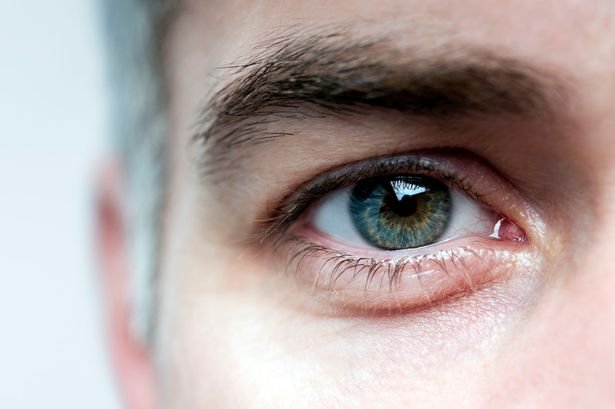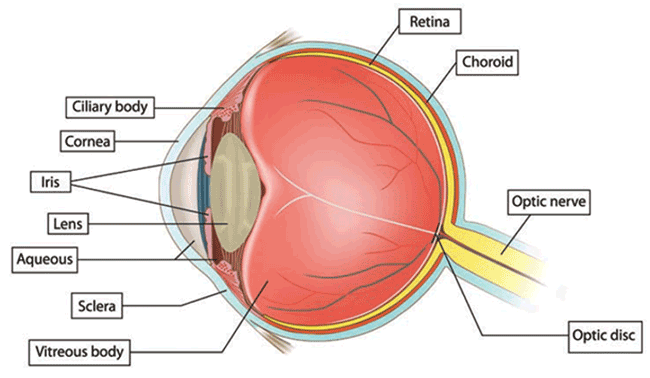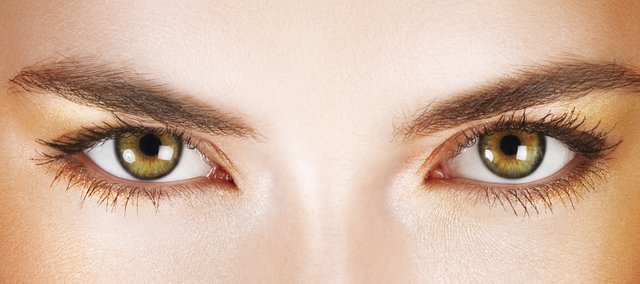
The eye, the most delicate part of our sensory equipment, is surprisingly vulnerable. To be sure, much pof it is protected by the skull aswell as the socket, composed of a bony cavity padded with fat, absorbs all but the most severe affronts. But roughly one tenth of the eye’s total surface 'the almond-shaped portion' that peers out into the world and gathers light-has, when open, nothing between it and the atmosphere.

The body protects this vital asset by blinking. During the blink itself, which may last no longer than a tenth of a second, a flap of one of the body’s thinnest skins, reinforced with tough cartilage-like fibres, snaps shut. Then the lids retract, coating the eyes in a lilm of tears. These tears rinse away debris and cleanse and lubricate the surface.

Blinks can take several forms. Besides the blinks that wash the eye, there are those associated with sudden unexpected circumstances (such as loud noises), as well as the voluntary flaps of the eyelids that may express anger or incredulity. Another type, the spontaneous eye blink, is neither voluntary nor reflexive. Most blinks are spontaneous.

Mere eye-rinsing requires a blink ‘ no more than once a minute; yet most people blink around 15 times a, minute. Why do we blink so frequently?
Apparently there is a direct relationship between spontaneous blinking and the mind. Using cameras, infra-red lights and electrodes to gauge the electrical bursts from nerves and muscles around the eyes, scientists can now discern how the frequency and duration of blinks vary according to whether a person is alert, bored, anxious or concentrating.
LINKS OF IMAGES
http://www.mirror.co.uk/lifestyle/health/ever-uncontrollable-twitch-your-eye-7418422
https://www.studyblue.com/notes/note/n/antphy-2201-study-guide-2015-16-hill/deck/15745264
https://www.shutterstock.com/video/clip-6291674-stock-footage-womans-face.html?src=recommended/4410683:7
http://www.ferrystreetoptical.com/category/eye-care/
Great read man, we kind of take stuff like that for granted.
Downvoting a post can decrease pending rewards and make it less visible. Common reasons:
Submit
That's because we humans are sadly selfish.
Downvoting a post can decrease pending rewards and make it less visible. Common reasons:
Submit
As you pointed out, blinking is likely a multi-functional adaptation for humans. An interesting study on the protective nature of blinking found that pregnant women actually blink several times more per minute than non-pregnant women. On the other hand, a different study found that when several individuals watch the same tv show, they often blink in synchronicity and another study found that people tend to blink more when they are engaged in conversation. What those studies suggests is that blinking likely acts as a way to refresh an individuals attention. Great post. Very interesting.
Downvoting a post can decrease pending rewards and make it less visible. Common reasons:
Submit
Thank you for reading. I will be following your blog.
Downvoting a post can decrease pending rewards and make it less visible. Common reasons:
Submit
Thanks. And same
Downvoting a post can decrease pending rewards and make it less visible. Common reasons:
Submit
Nice work, i hope you grow fast on steemit :)
Downvoting a post can decrease pending rewards and make it less visible. Common reasons:
Submit
Hey thanks. I wish you the very same.
Downvoting a post can decrease pending rewards and make it less visible. Common reasons:
Submit
You are more than welcome
Downvoting a post can decrease pending rewards and make it less visible. Common reasons:
Submit